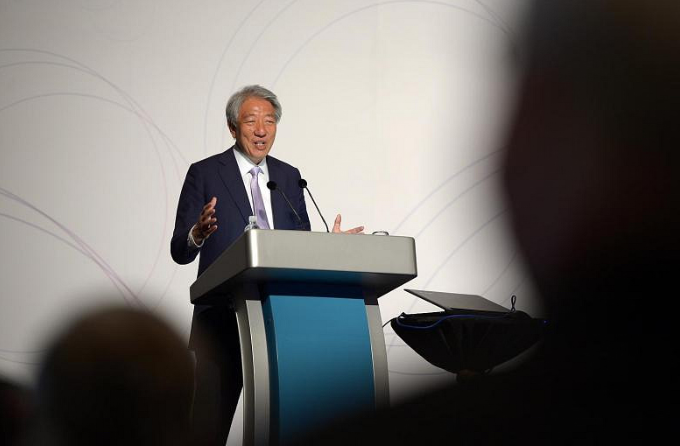Senior Minister Teo Chee Hean emphasises the importance of openness in fostering economic growth and social cohesion.
At the World Cities Summit on August 1, Senior Minister Teo Chee Hean stressed that cities like Singapore must remain open to investments and global talent in order to thrive. He highlighted that this approach is crucial for driving innovation, economic vibrancy, and providing opportunities for citizens.
Teo explained that cities prosper by attracting skilled workers, fostering new ideas, and driving economic progress. However, he acknowledged the rise of anti-globalisation sentiments and populism, as the benefits of globalisation are not always equitably shared. While such feelings may be prevalent worldwide, including in Singapore, Teo urged cities to continue embracing openness and focus on preparing their people to seize new opportunities.
He suggested that cities should invest in a forward-looking education system, supported by continuing education and lifelong learning, to equip citizens with the skills needed for the jobs of the future. This approach ensures that cities can continue to advance while enabling their citizens to compete fairly for emerging roles.
Teo also emphasised the importance of trust between citizens and leaders, which forms the foundation for overcoming crises. The collective efforts seen during the COVID-19 pandemic exemplified the social resilience and cohesion that cities must continue to build upon. One way to enhance social capital is through civic and government interventions, such as providing shared spaces and experiences.
On the topic of sustainable growth, Teo discussed the balance between development and livability. He stressed the need for sound planning, both in terms of physical infrastructure (the “hardware”) and the rules and processes (“firmware”) that turn policy into action. He underscored the importance of pricing externalities, such as water and energy, to incentivise responsible consumption and business practices.
Teo shared that Singapore’s water pricing reflects its scarcity value and that the country has implemented policies, such as a carbon tax, to promote sustainability. He also pointed out the importance of investing in energy efficiency and incentivising greener practices among both businesses and households.
Urban transportation is another area where Singapore has made significant strides, with a focus not just on electric vehicles, but on reducing the need for personal cars through integrated urban planning and a robust public transport system. Teo noted that Singapore’s zero-growth vehicle policy since 2018 aligns with its commitment to building a greener, more liveable city.
Teo concluded by emphasising the need for cities to be resilient in the face of challenges like pandemics, natural disasters, and climate change. He also highlighted the role of cities as “living laboratories” where sustainable technologies can be developed and tested. With the world’s urban population set to grow substantially in the coming decades, particularly in Asia and Africa, Teo called for a new paradigm in city planning that prioritises resilience, sustainability, and cohesion.








